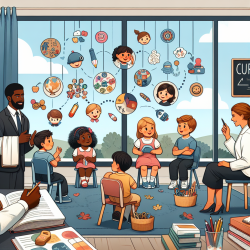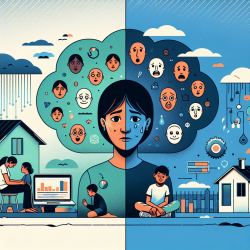As a Special Education Director and an advocate for effective language therapy, it's crucial to understand the dynamics between academic curriculum and language therapy programs. The research by Helen G. Ilott, titled "Language Therapy for Elementary School - Children Hypotheses from Curriculum," provides valuable insights into how curriculum requirements can significantly influence the development of language therapy goals. This blog aims to explore the disparity between speech pathology methodology and curriculum areas, emphasizing the process in curriculum texts, and how practitioners can bridge this gap to enhance language therapy's effectiveness.
Curriculum Texts Emphasize Process
One of the key findings from Ilott's research is the marked emphasis on process within curriculum texts, which is notably absent in speech pathology publications. Curriculum areas such as mathematics, reading, and language arts focus on developing learning processes like analyzing, synthesizing, and hypothesizing. This approach contrasts with the more content-focused methods prevalent in language therapy, which often prioritize language forms and functional language based on curriculum content rather than engaging with these broader educational processes.
Integrating Curriculum Processes into Language Therapy
To bridge the gap identified by Ilott, practitioners can take several steps:
- Systematic Inclusion of Curriculum Processes: By incorporating curriculum-related processes systematically into language intervention therapy, there may be more realistic academic gains for students. This approach requires a shift towards viewing curriculum processes as integral to language development.
- Approaching Curriculum Processes as a Special Sub-Type of Functional Language: This perspective allows for the inclusion of these processes in a comprehensive, systematic way, similar to how functional language is currently integrated into language therapy programs.
- Designing Programs with Appropriate Content and Educational Processes: Effective language intervention programs should select suitable linguistic contexts and educational processes that align with the curriculum's emphasis on process.
Conclusion
The disparity between the methodology of speech pathology and the process-oriented approach of curriculum areas presents an opportunity for practitioners to refine their language therapy programs. By integrating curriculum processes into language therapy, practitioners can enhance the academic success of children in elementary schools. This approach not only aligns with the broader educational goals but also ensures that language therapy is more relevant and effective in a classroom setting.
For practitioners looking to improve their skills or delve further into this topic, understanding the relationship between curriculum processes and language therapy outcomes is crucial. Implementing the insights from Ilott's research can lead to more effective language therapy strategies that support students' overall academic achievement.
To read the original research paper, please follow this link: Language Therapy for Elementary School - Children Hypotheses from Curriculum.










